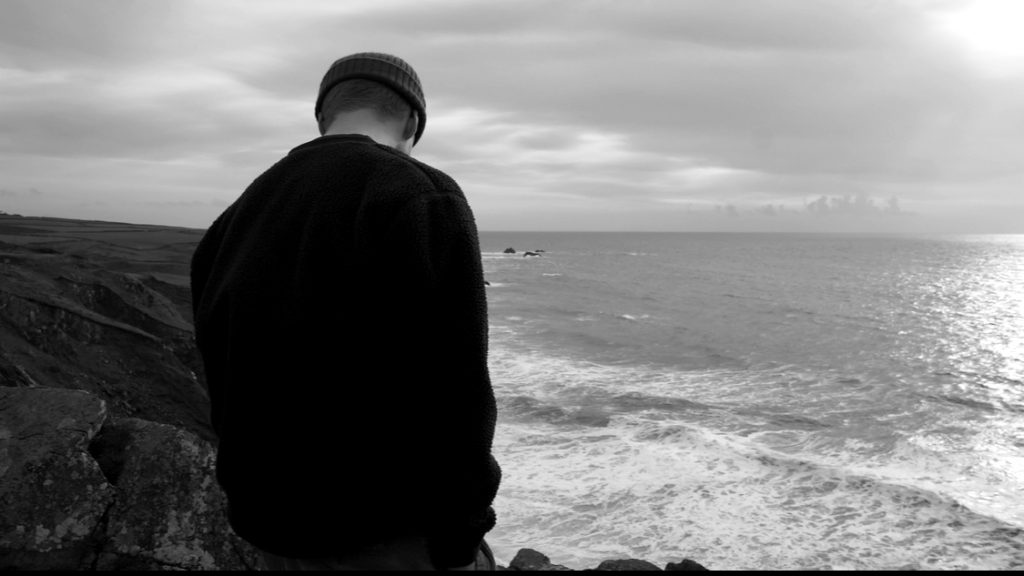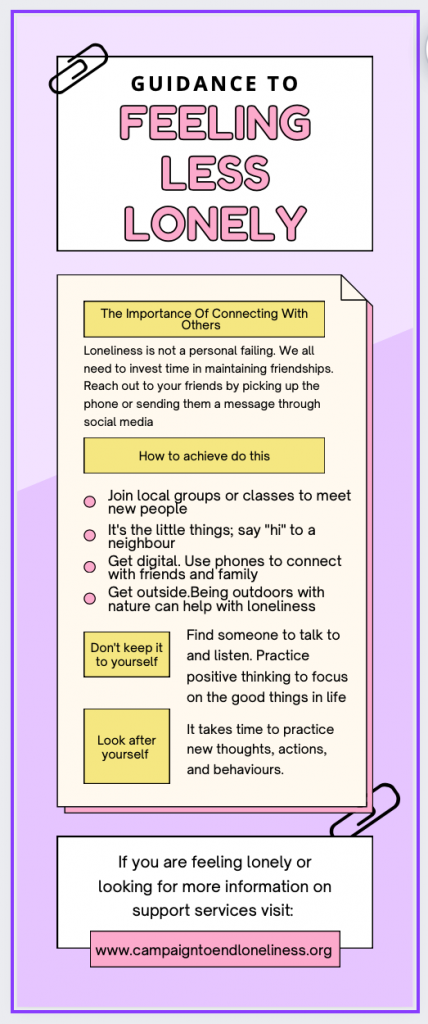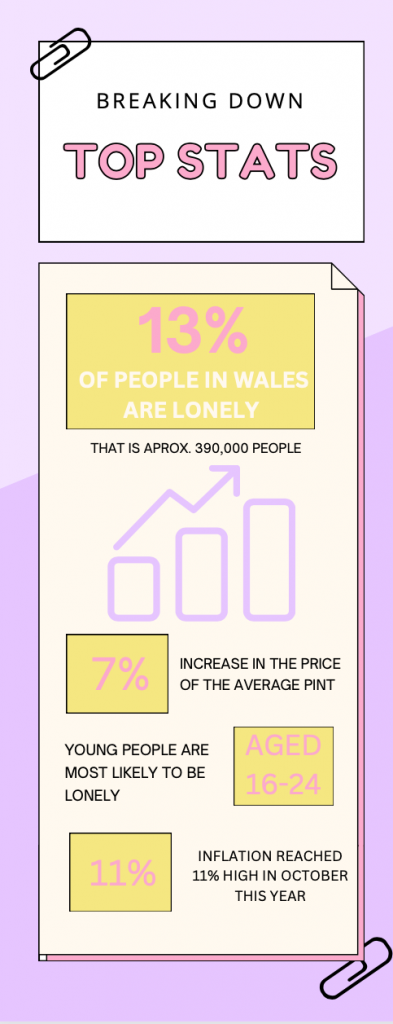Having a social life comes at a cost, and loneliness is the price to pay

Credit Tianna Williams
“Anyone fancy a pint?” says your phone as the group chat lights up with notifications to form a plan for the evening. After spending the day working from home you haven’t gone outside let alone see another human, and the social interaction would be good. As you contemplate this idea, you check your bank balance. Overdrawn. You text back:
“Can’t tonight, maybe another time.”
The cost-of-living crisis has an impact on everyone, but for young people there is a need for concern as loneliness increases.
In the last year, 13% of people in Wales were found to be lonely, according to the Welsh Government, with young people most likely to feel loneliness. This figure may not seem like a large number but that is approximately 390,000 of the Welsh population, and based on the 2020 national survey is around 78,000 young people, which hasn’t decreased since the pandemic.
Inflation reached a staggering 11% in October this year, which is a 41-year high. As people save up for their next purchase of toilet paper (a pack of nine is £9.50) fewer people can afford to go out. Especially since the average price of a pint has risen by more than 7% since 2020. With 53% of people saying they miss having people around them, are there other ways to see friends and be social, that doesn’t cost half of your weekly food shop?
Life’s Luxuries

After the pandemic Lowri Price assumed her social life would be buzzing. She wanted to make up for the time lost during her university years, when her socialising was stolen from her due to the pandemic. However, with the cost-of-living crisis this has become less of a priority. The 22-year-old from Glamorgan said loneliness has been enhanced by the transition from adolescence to adulthood. She now feels like she has to deal with difficulties on her own.
Price said the cost-of-living crisis has impacted the way she fills her free time. Normally she would socialise with friends, now she feels like this is a luxury.
She said: “Having to worry about being able to survive is obviously taking priority over having a social life right now.”
Price put partying with her friends on hold, as she picked up extra hours working in her local pub instead.
The importance of social interaction has been shown in various scientific studies, and socialising shouldn’t be a luxury, as it is a function in human nature.
The isolated impact
Now that seeing friends is considered an unaffordable luxury, The Wales Centre for Public Policy (WCPP) data suggests young people aged 16-24 are more likely to report being lonely. Hannah Durrant a researcher at the WCPP, found that young people living in the 20% most deprived areas in Wales are the loneliest.
Furthermore, among those aged 25-64 from ethnic minority backgrounds are lonelier than those who identify as White British. Also having a poorer level of general health means higher levels of loneliness across all age groups. All these factors combined are creating a perfect storm of increased isolation for increasing numbers of young people in Wales.
Robin Hewings says the rise of loneliness in young people is concerning. The director of the Campaign to End Loneliness says chronic long-term loneliness has increased since the pandemic, especially in young people.
He said: “Before the cost-of-living crisis, income was already a good indicator for the relationship between loneliness and low income.
“And it doesn’t just affect social interactions, but romantic relationships too.”
Hewings said older people have already built-up resilience and established key relationships in their lives, which young people have yet to start. He said with the cost-of-living increasing, dating and establishing new relationships may not be a priority. Especially when Brits spend £1280 per year on date-related activities.
Building relationships from dating by using dating apps is a popular method for meeting new people. However, Hewings said that you should still be mindful when using mobile phones.
The director said to use them to connect to people and not compare as, “Instagram is just showing off the most glamorous part of their lives.”
Being able to survive is obviously taking priority over having a social life “
A tight knit bunch

Social activities, however beneficial they are, don’t always have to mean active sports such as joining running groups or team games. Knitting has been on the rise since Tom Daley was seen knitting poolside at the Olympics to help manage stress, and for Amy Palmer it was for the same reason . The founder of the Cardiff Knit and Crochet Club started knitting when she was studying at university. Palmer said that knitting helped her to make friends and feel less lonely during lockdown.
When it comes to meeting new people, she said: “Crafting is great as you know straight away you will have something in common with others.”
It is free to join many knitting clubs, as it is a network for people to socialise and you bring your own materials. She said the average age turn out varies between mid 20’s to early 30’s, with the number of monthly meetings being requested to increase due to the popularity.
There have been many health benefits from knitting, more of which is detailed in the video below. The cost of knitting is cheaper than a sports club membership and can be done almost anywhere.
According to the Guardian; there is a misconception that knitting is an expensive hobby, when hand-spun, naturally dyed British yarn can cost as little as £3. Although to buy clothing new is very cheap on the high-street, you can make your own for as little as £12 according to The Invisible Woman. Furthermore, to knit your own jumper can cost £25 which is cheaper than annual memberships for many sporting clubs, and you get the satisfaction from making it yourself.
For her mental health Palmer uses knitting to ease anxiety while giving her a productive outlet which helps to disconnect. She said: “I can’t check my phone if I’m using both hands to knit.”
However, the most cost-effective way of reducing loneliness is by getting outdoors. Hewings said there are many benefits being surrounded by nature, and it’s for free.
However, next time your phone lights up with a notification from the group chat you don’t have to reject seeing friends due to the cost of a pint, maybe suggest just taking a walk instead.
Check out below this explainer video which highlights the multiple benefits of knitting
